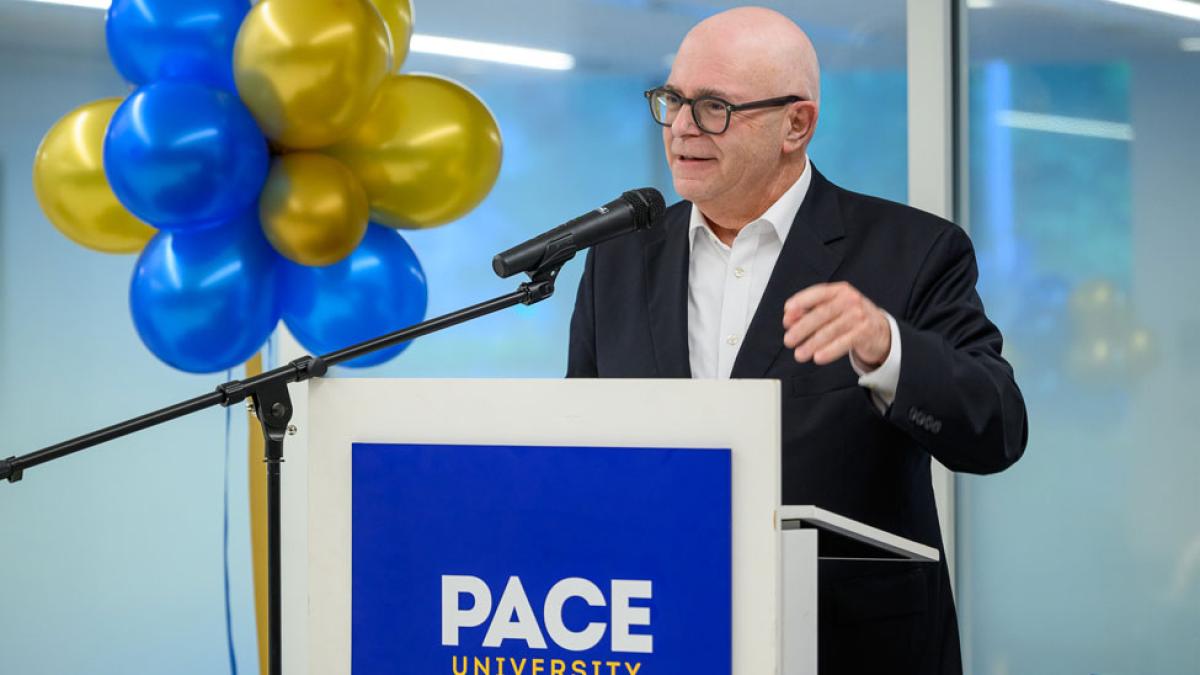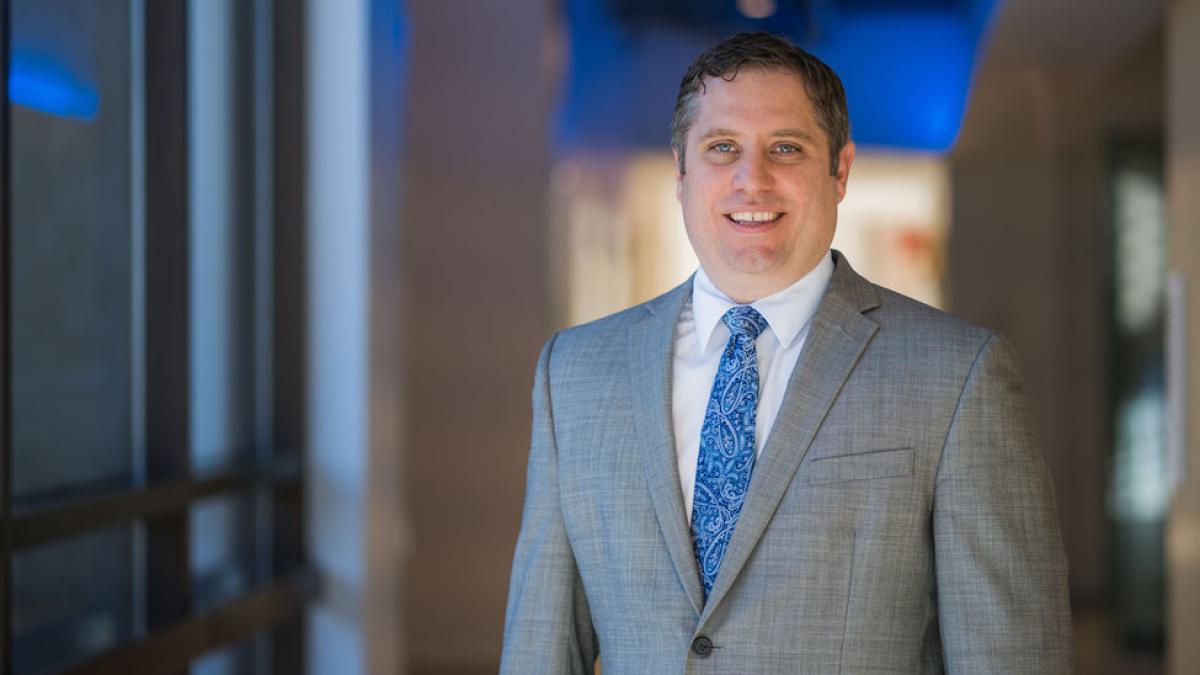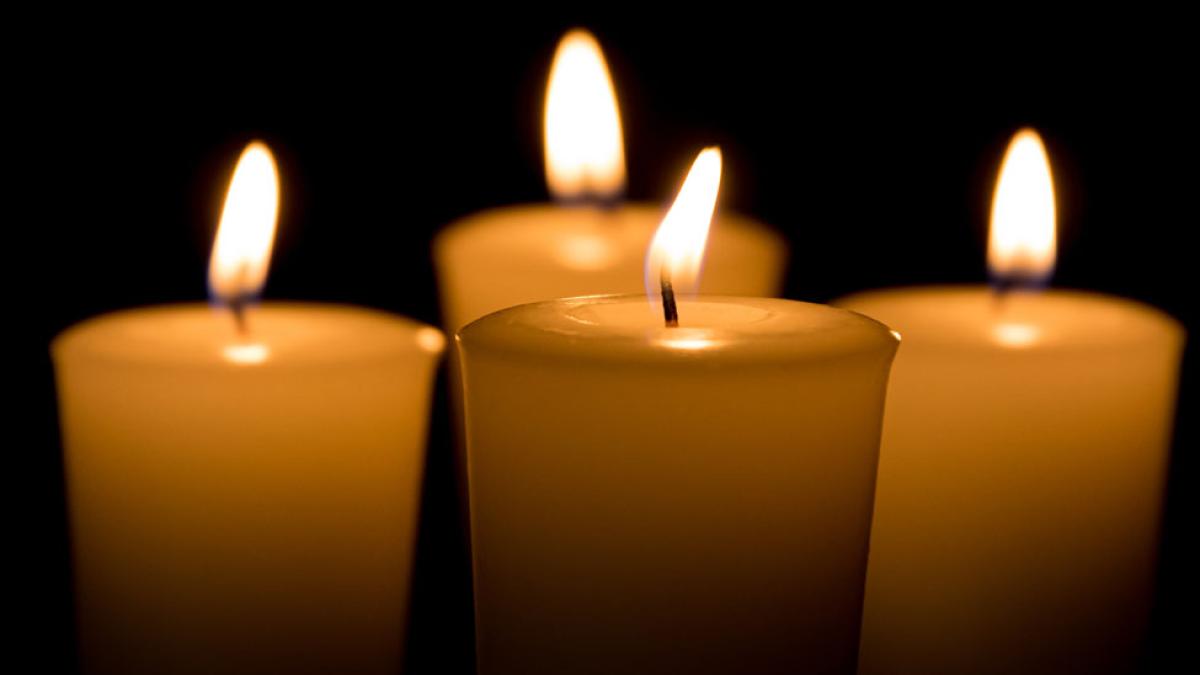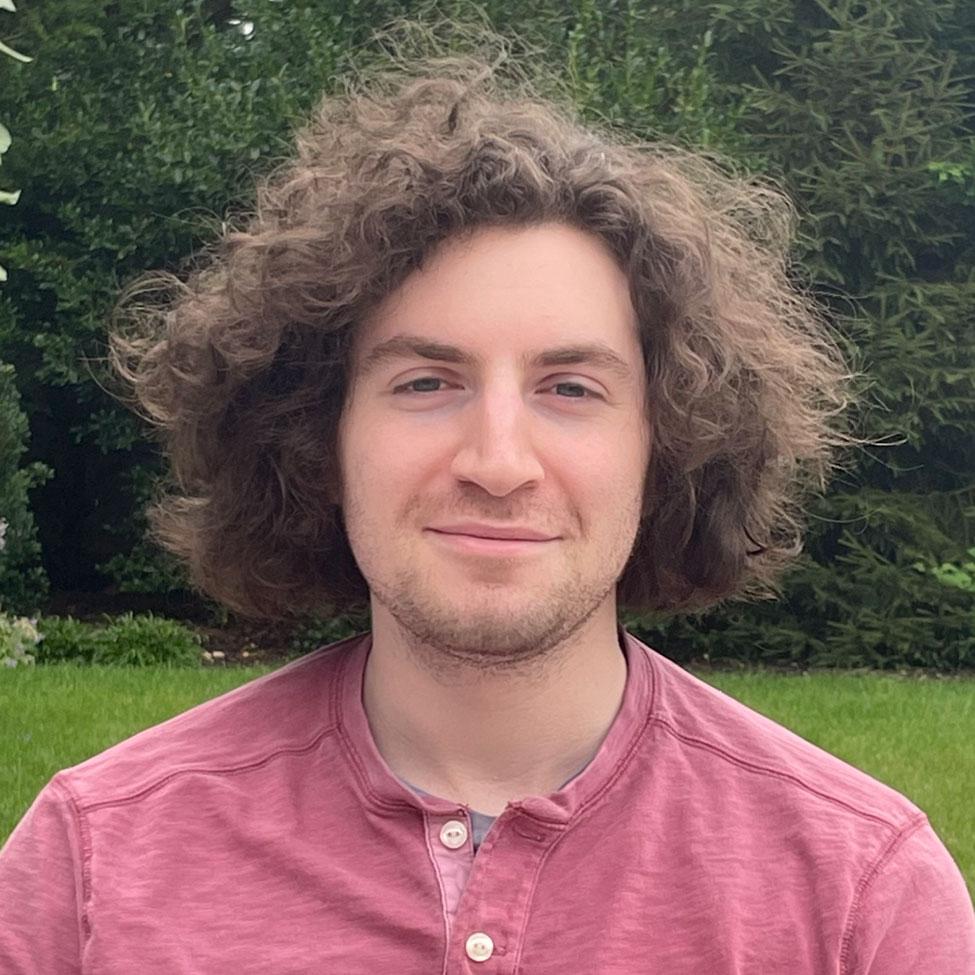
Dan Crotty '23: Future Leader In Mental Healthcare
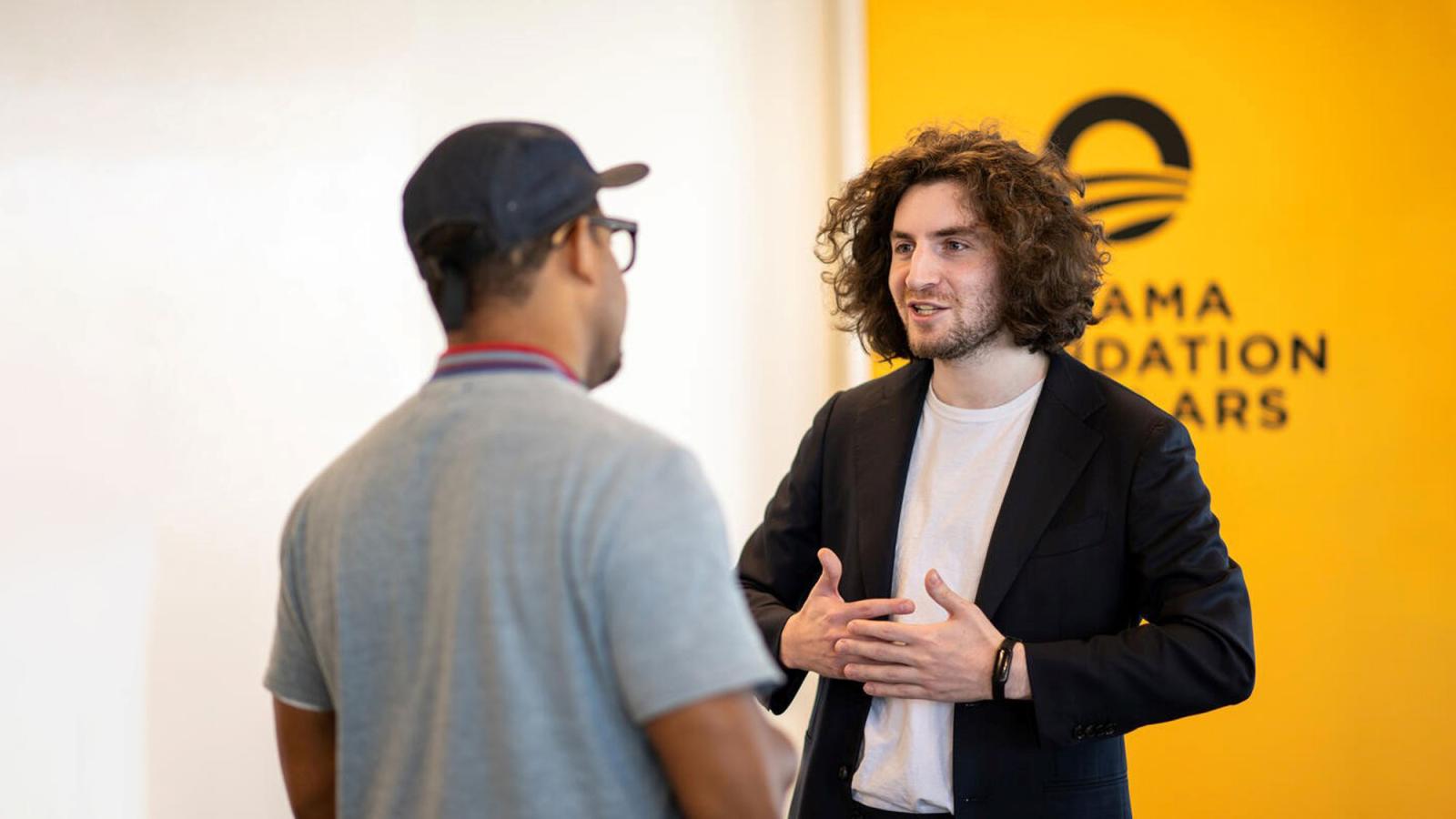

Pace alumnus Daniel Crotty ’23 never expected to be recognized as an emerging leader in the field of mental healthcare. In fact, they never expected to launch a career in the field at all. But after a life-changing experience inspired them to study psychology at Pace, they discovered an unexpected calling to serve those who have historically lacked access to mental health resources.
Now, just a little over a year after graduation, that newfound calling has earned them the prestigious title of Obama Foundation Scholar.
Long before they arrived at Pace, Daniel’s first act was in the music industry, where they earned several internships with high-profile New York City recording and media companies. However, in 2018, the Rye, New York, native decided it was time for a change. It was an inflection point in their life, a moment of uncertainty. They weren’t sure what their next step would be or where their career would take them, but they did know one thing: they needed a job. Through a personal connection, they secured a position at a sober living transitional treatment center.
In Daniel’s mind, it was a temporary stop—a minor detour during a period of shifting career priorities. Instead, it turned out to be an experience that would redefine their professional aspirations.
"I was shocked to be a finalist and even more so to be a participant. It’s an opportunity that I never thought I would have."
“At the time, I had no desire to go into this field,” Daniel said. “I took the job because it was available. People had actually told me that it was something I might be good at, but I was always like, ‘Absolutely not. There’s no chance.’ But then I started doing the work and I said to myself, ‘Okay, I like this. This works for me. This is a career I can see myself in long term.’”
The job at the treatment center changed Daniel’s perspective, but it came with a condition: Their boss, who helped connect them to the role, told them that if they wanted to continue working at the center, they would need to start taking classes.
Daniel credits his boss’ encouragement, as well as their work at the center supporting New Yorkers recovering from addiction and substance abuse issues, as being vital motivators in their decision to pursue a psychology degree at Pace.
“I was hesitant to go back to school,” Daniel said. “I wasn’t that old—around 25—but it seemed to me like I was so much older than the other students. I’m very thankful that I had that push to go for it. I don’t know if I would have done it otherwise.”
On Pace’s New York City Campus, Daniel found a community of professors whose empathy and focus on student achievement further fostered their burgeoning passion for mental healthcare. Faculty members like Jessica Mura, Professor June Chisholm, and Professor Weihua Niu made time to support their development and helped them clarify their goals.
But more than that, Daniel said, their Pace professors modeled a humanitarian approach to mental healthcare that centered clients’ needs—an approach they had sometimes found lacking in their own personal experiences with mental health counselors.
“There’s an old school therapeutic dynamic that says, ‘The therapist is the expert. They know everything, and that’s it.’ But as soon as I got to Pace, I could see that my professors were not like that at all. They understood the importance of focusing on clients’ needs, making sure they’re taken care of. It meant a lot to me to see that approach, and it was inspiring to see how dedicated they were to their work.”
It was this same approach that Daniel would carry with them to their graduate studies at the University of Chicago, where they are currently completing a master’s in social work with a concentration in clinical practice, and into their work at Chicago Therapy and Wellness and the Above and Beyond Family Recovery Center, where they have served in both clinical and organizational roles.
In both their studies and their community work, Daniel has recognized that effective mental healthcare must extend beyond the treatment of symptoms. It must be viewed through a holistic lens, they said, with careful consideration for the manifold factors that contribute to psychological wellbeing: housing, employment, transportation, food security, etc. This is especially true for historically marginalized groups, who in many cases have been systematically disadvantaged over generations, resulting in even higher barriers to the fundamental requirements for mental wellbeing.
The challenging but vital work of overcoming these barriers is what inspired Daniel to apply for the Obama Foundation Scholars program through its affiliate partnership with the University of Chicago. For Daniel, the surprise of receiving the title of Obama Foundation Scholar was second only to the excitement at the opportunity to deepen their impact in the communities they serve.
“There are so many ridiculously qualified people doing amazing things, I never thought I was going to get it in a million years,” Daniel said. “I have this passion for my work, I can talk about it for hours. But the question becomes, ‘How do you turn this into results?’ And this is what the program is all about. I was shocked to be a finalist and even more so to be a participant. It’s an opportunity that I never thought I would have.”
“It’s about finding your passion and turning it into something sustainable real,” Daniel said. “It can be scary, but you have to push ahead and go for it."
With their graduate studies nearly complete and the added resources and experiences afforded by the Obama Foundation Scholars program, Daniel plans to continue combating systematic obstacles to mental healthcare by combining on-the-ground service with an increased focus on public policy. By their own admission, it’s not a road they ever saw themself taking, but now they’re more motivated than ever to continue making a difference in people’s lives—to use the lessons they learned at Pace, the University of Chicago, and the Obama Foundation Scholars program to create meaningful and lasting change.
And now, they want to inspire others to do the same.
“It’s about finding your passion and turning it into something sustainable real,” Daniel said. “It can be scary, but you have to push ahead and go for it.
“We see a lot of hatred and lack of empathy today, and I think the world needs more people who are doing good and caring about others. This is what motivates me to make sure people have basic resources and the ability to not just to survive, but to thrive. We need people in all different fields who care about social justice and doing good in the world. It can be a sacrifice, but it’s an important sacrifice to make.”
More from Pace Magazine
After seven years of transformative leadership, alumnus Gary Laermer ’80 retires as VP of Development and Alumni Relations. His legacy of philanthropy and student impact will inspire Pace for years to come.
Meet Director of Energy and Resiliency Ryan McEnany. Under his leadership, Pace has achieved a 24% reduction in greenhouse gas emissions, saved more than $7 million through energy efficiency, and implemented innovative programs that inspire our community.
The Pace Community honors Morgan Jenness and Professor Vanessa Merton, two extraordinary individuals who left a lasting impact on our University. Their legacies live on in the lives they touched and the communities they inspired.
